Question And Answer
Publications
Articles, publications, books, tools and multimedia features from the U.S. Institute of Peace provide the latest news, analysis, research findings, practitioner guides and reports, all related to the conflict zones and issues that are at the center of the Institute’s work to prevent and reduce violent conflict.
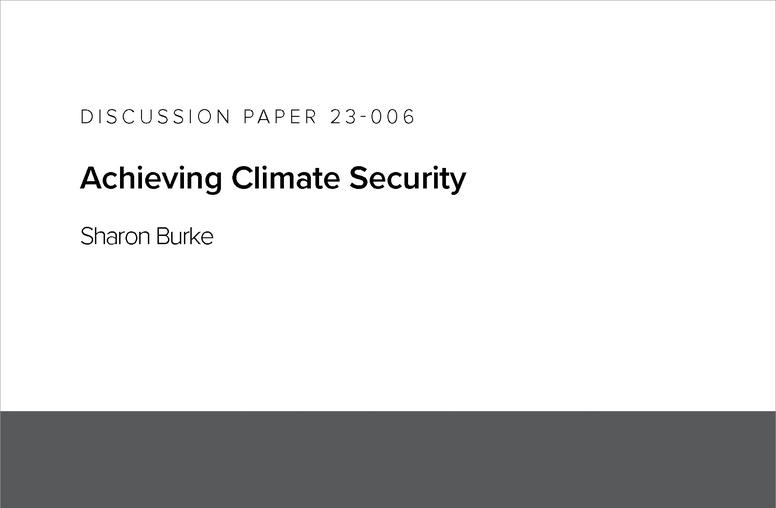
Achieving Climate Security
The ambition of civilian leaders at the Pentagon to bring climate security policy to scale quickly is running into the shoals of a peculiar reality: climate security as a concept is not well defined and controversial, even as climate impacts on societies are mounting. There is clearly a connection between the effects of a changing climate and security—security both in the broadest sense of the safety and well-being of human societies and in the narrower sense of threats to civil order—but there is insufficient climate security research and analysis to guide policy.

Tegan Blaine on the COP27 Climate Conference
As COP27 continues in Egypt, USIP's Tegan Blaine says, "The one issue that is really beginning to explode this year is the issue of loss and damage" and support for poorer countries. "They weren't responsible for the cause, and they don’t have the resources to [address climate change] on their own."
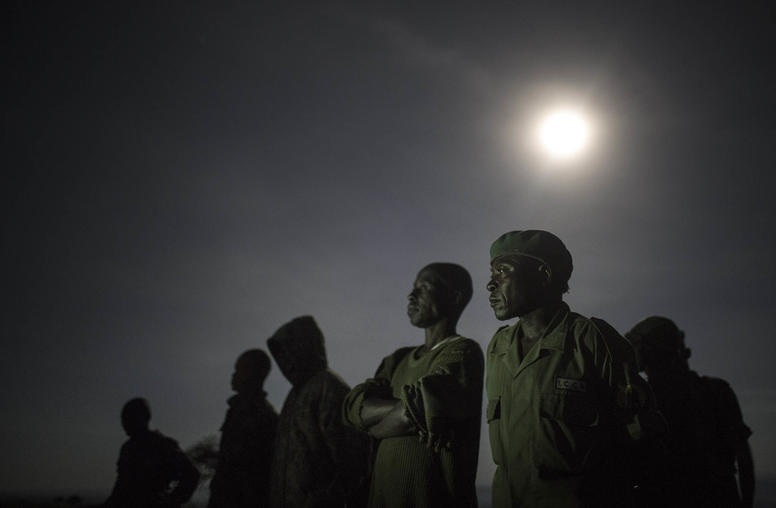
Armed Actors and Environmental Peacebuilding
The eastern provinces of the Democratic Republic of the Congo (DRC) have been the site of decades of conflict between the Congolese army and nonstate armed groups. The region’s conflict dynamics are profoundly affected by the combatants’ exploitation of and illegal trade in natural resources. Drawing lessons from eastern DRC, this report argues that the environmental peacebuilding field needs to do more to understand how armed actors shape resource governance and resource-related conflict, which in turn can lead to better-designed peacebuilding programs and interventions.
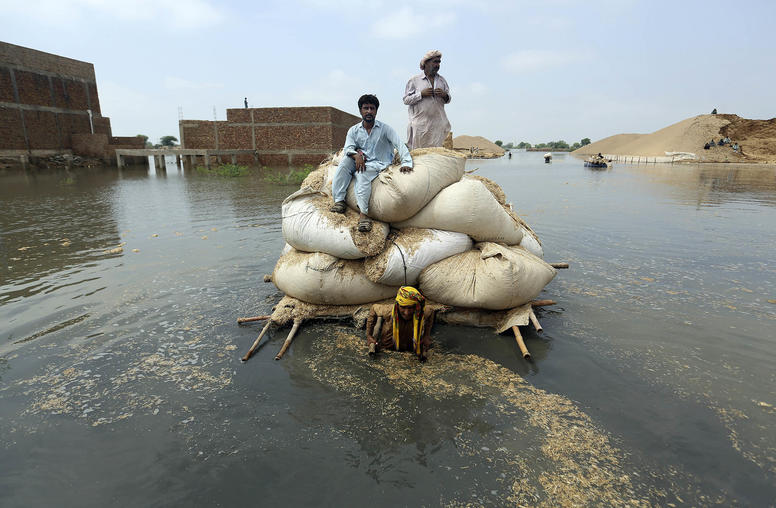
Displaced to Cities: Conflict, Climate Change, and Rural-to-Urban Migration
Countries as geographically diverse as Honduras, Jordan, and Pakistan are experiencing a common challenge—rapid growth in urban populations as conflict and climate-induced disasters push people from rural areas into cities. This report examines the effects of this increased urban migration on both the migrants and the urban environment, as well as the challenges policymakers face. It offers recommendations to help meet the needs of growing urban populations and develop adaptive, resilient systems to better withstand the impacts of climate change and conflict.
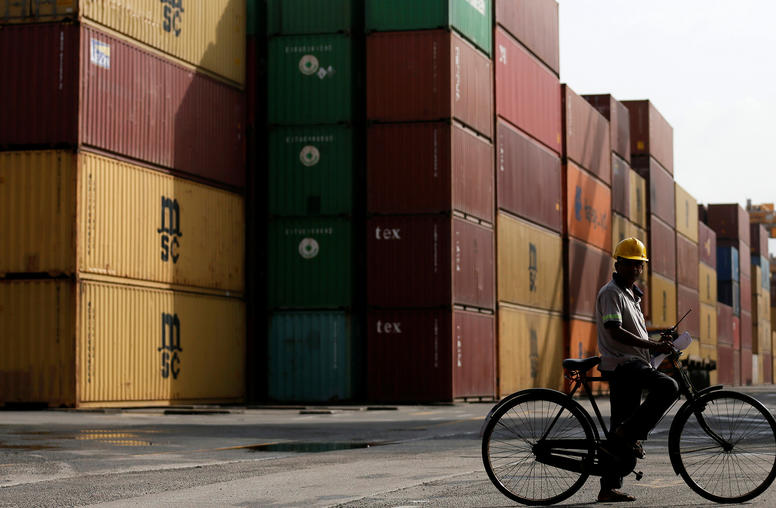
China’s Engagement with Smaller South Asian Countries
When the government of Sri Lanka struggled to repay loans used to build the Hambantota port, it agreed to lease the port back to China for 99 years. Some commentators have suggested that Sri Lanka, as well as other South Asian nations that have funded major infrastructure projects through China’s Belt and Road Initiative, are victims of “China’s debt-trap diplomacy.” This report finds that the reality is...
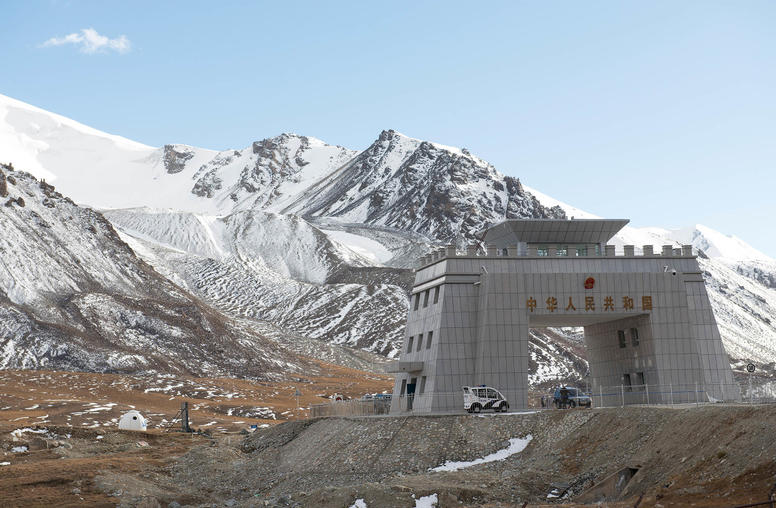
Strategic Implications of the China-Pakistan Economic Corridor
Great power politics is resurgent in South Asia today. China’s growing military ambition in the region is matched in financial terms by its Belt and Road Initiative, the largest and most advanced component of which is the China-Pakistan Economic Corridor. What remains unclear is how the United States should navigate the new dynamic. This report, which is based on research and consultations with experts worldwide, addresses the question of how the India-Pakistan rivalry will play into the emerging great power competition.
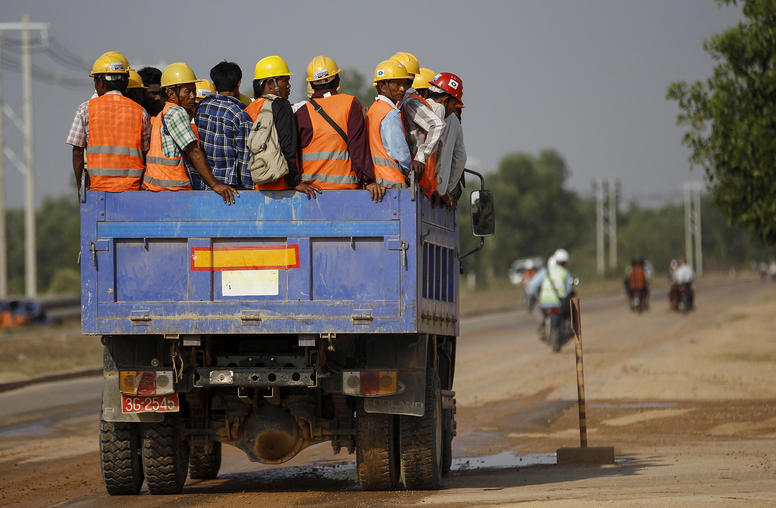
The Intersection of Investment and Conflict in Myanmar
Developing countries throughout Asia, Africa, and Latin America are grappling with how to deal with China's rising economic influence—particularly the multibillion-dollar development projects financed through China’s Belt and Road Initiative. Myanmar, however, appears to be approaching foreign investment proposals with considerable caution. This report examines the framework the country is developing to promote transparency and accountability and to reserve for itself the authority to weigh the economic, social, and environmental impacts of major projects proposed by international investors, including China.
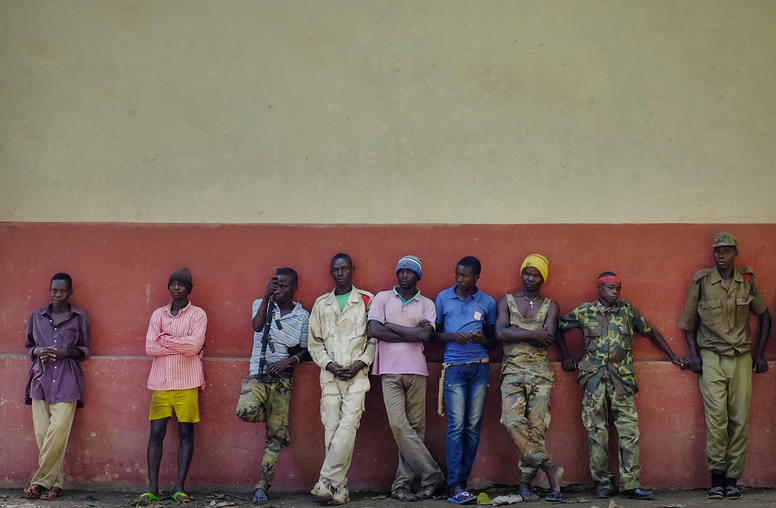
The “Green Diamond”: Coffee and Conflict in the Central African Republic
Coffee production is a fairly small part of the Central African Republic's economy, but it plays an outsize role in the country's ongoing conflict. Armed militia groups that hold sway over the country's main coffee growing regions and trade routes reap millions of dollars in funding to sustain their operations. This report discusses how understanding the political economy of conflict in the Central African Republic can help national and international stakeholders break the cycle of violence.

Tegan Blaine on How Climate Change Impacts Global Conflict
USIP’s Tegan Blaine says we must be cognizant of how efforts to reduce climate change can exacerbate instability and conflict, as the resources needed for a greener global economy “are in places where the countries are already politically fragile” and higher demand adds more stress to already burdened institutions.

Tegan Blaine on the COP26 Summit
As the climate summit wraps up, USIP’s Tegan Blaine says the focus on net-zero commitments overshadowed immediate concerns such as addressing climate-driven migration: “We needed to commit to these things 10 years ago, 20 years ago … and we didn’t. So now the time is quite short.”